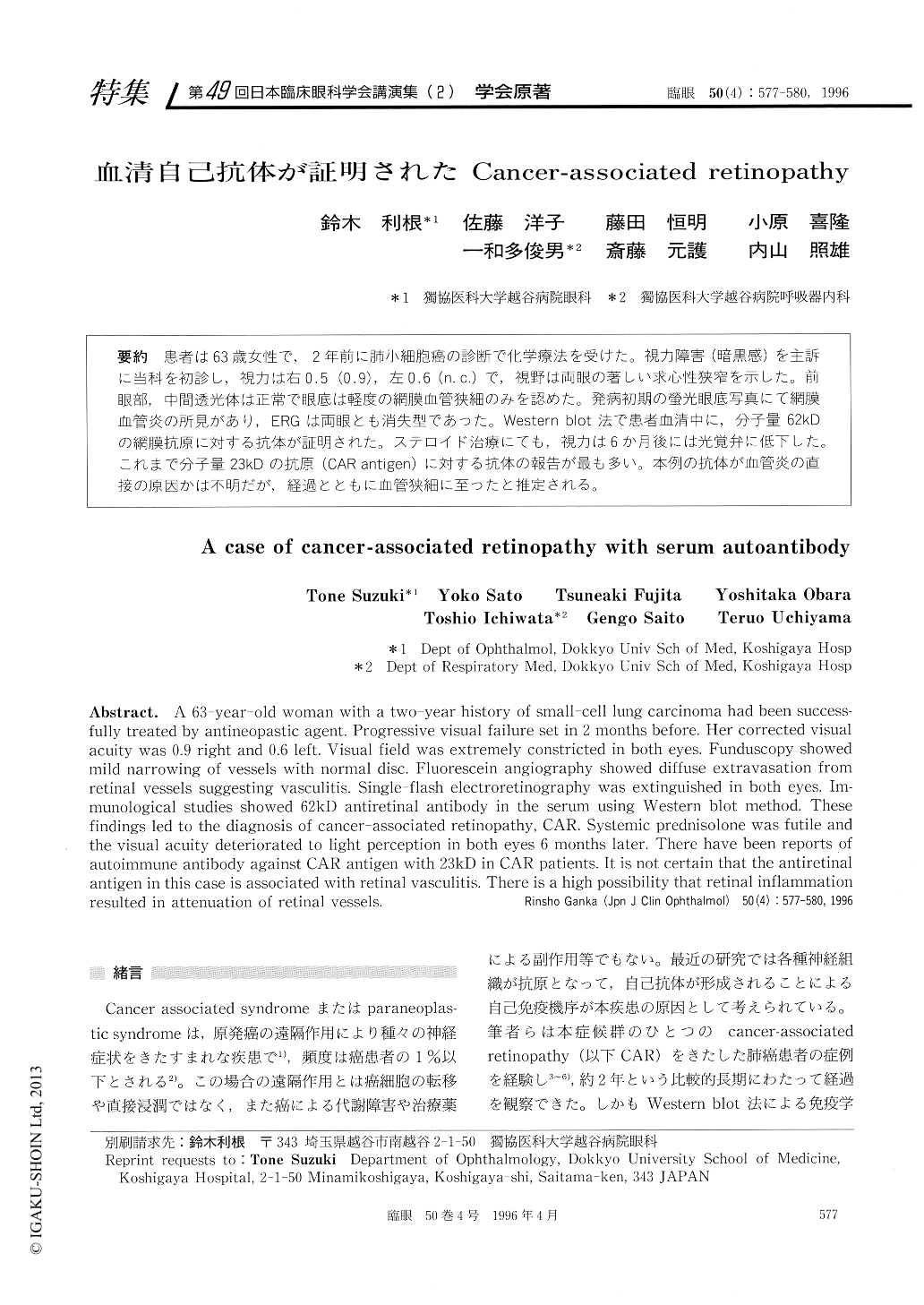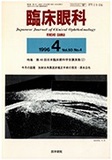Japanese
English
- 有料閲覧
- Abstract 文献概要
- 1ページ目 Look Inside
患者は63歳女性で,2年前に肺小細胞癌の診断で化学療法を受けた。視力障害(暗黒感)を主訴に当科を初診し,視力は右0.5(0.9),左0.6(n.c.)で,視野は両眼の著しい求心性狭窄を示した。前眼部,中間透光体は正常で眼底は軽度の網膜血管狭細のみを認めた。発病初期の螢光眼底写真にて網膜血管炎の所見があり,ERGは両眼とも消失型であった。Western blot法で患者血清中に,分子量62kDの網膜抗原に対する抗体が証明された。ステロイド治療にても,視力は6か月後には光覚弁に低下した。これまで分子量23kDの抗原(CAR antigen)に対する抗体の報告が最も多い。本例の抗体が血管炎の直接の原因かは不明だが,経過とともに血管狭細に至ったと推定される。
A 63-year-old woman with a two-year history of small-cell lung carcinoma had been success-fully treated by antineopastic agent. Progressive visual failure set in 2 months before. Her corrected visual acuity was 0.9 right and 0.6 left. Visual field was extremely constricted in both eyes. Funduscopy showed mild narrowing of vessels with normal disc. Fluorescein angiography showed diffuse extravasation from retinal vessels suggesting vasculitis. Single-flash electroretinography was extinguished in both eyes. Im-munological studies showed 62kD antiretinal antibody in the serum using Western blot method. These findings led to the diagnosis of cancer-associated retinopathy, CAR. Systemic prednisolone was futile and the visual acuity deteriorated to light perception in both eyes 6 months later. There have been reports of autoimmune antibody against CAR antigen with 23kD in CAR patients. It is not certain that the antiretinal antigen in this case is associated with retinal vasculitis. There is a high possibility that retinal inflammation resulted in attenuation of retinal vessels.

Copyright © 1996, Igaku-Shoin Ltd. All rights reserved.


